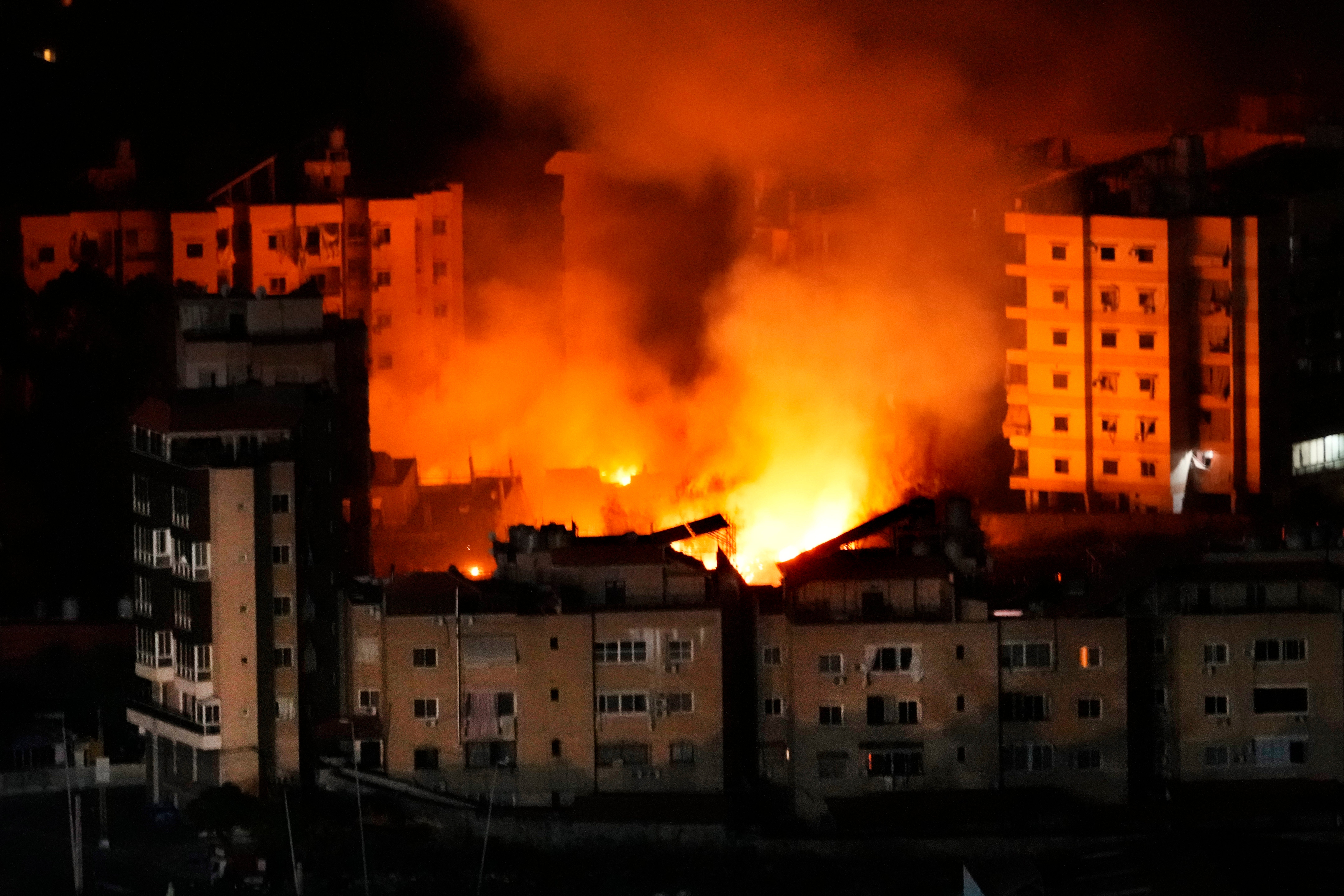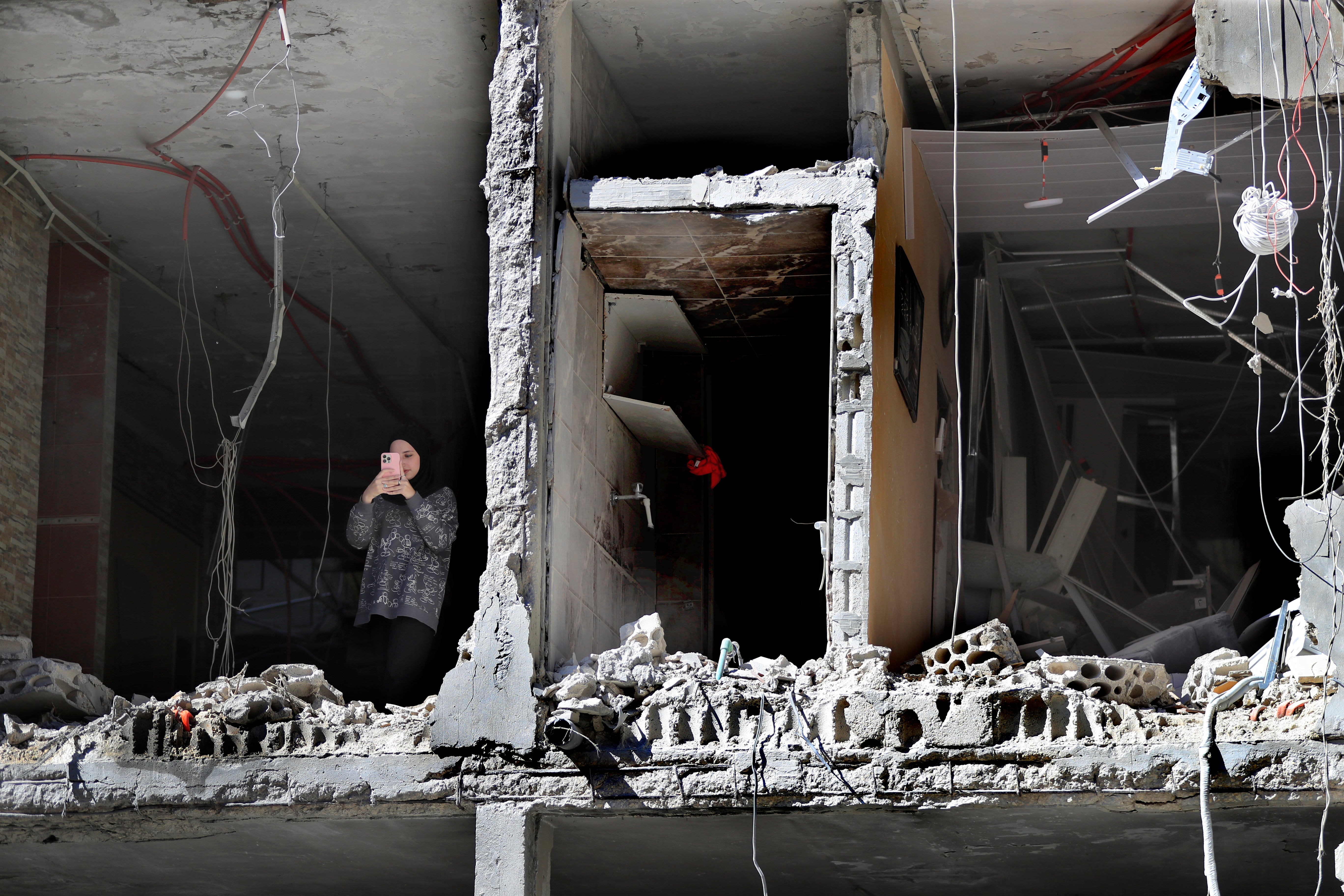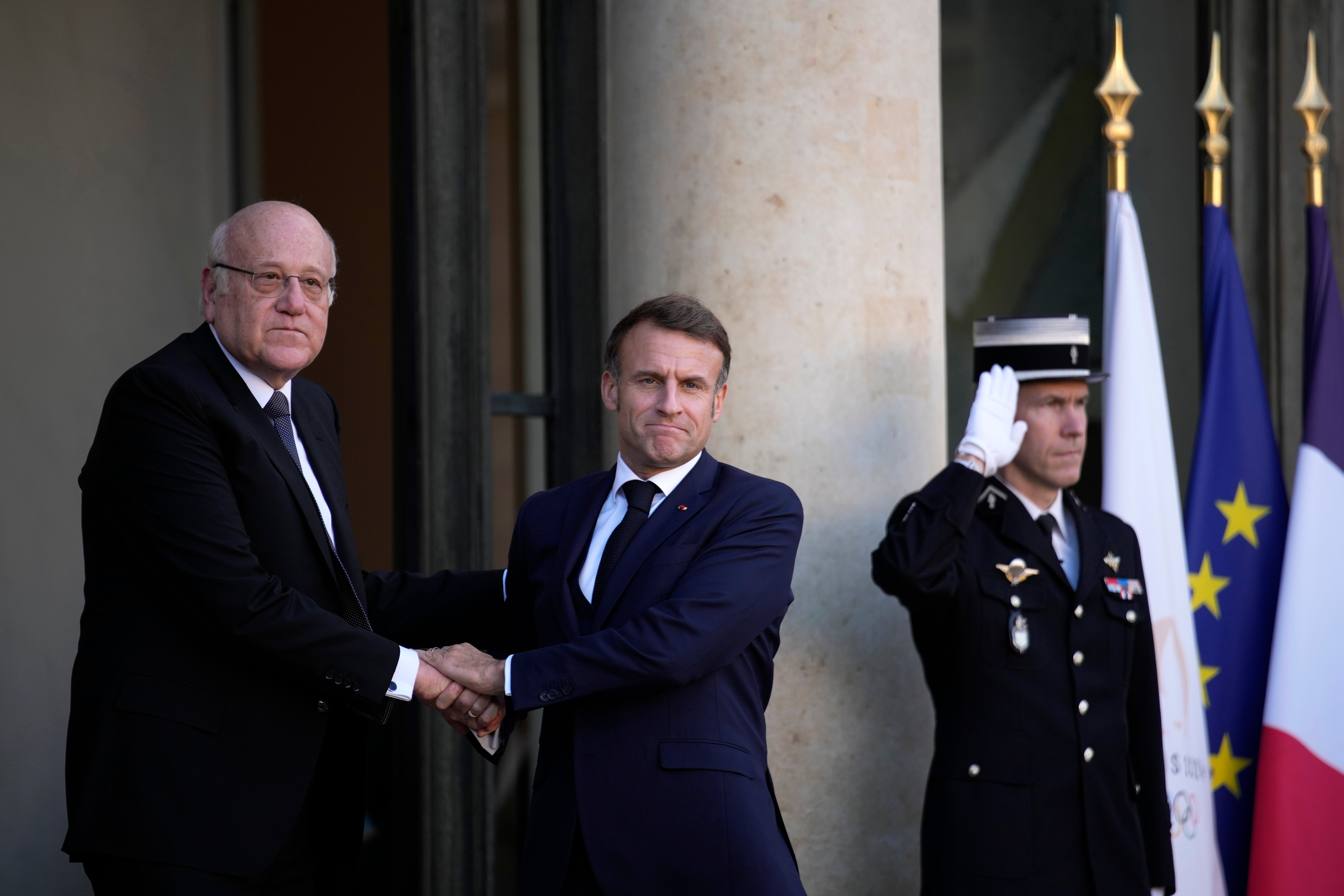$1 billion raised for Lebanon at Paris conference – but ceasefire remains elusive
It comes as an Israeli airstrike killed three Lebanese soldiers in the south of the country

Around $1 billion (£772 million) has been raised at a conference in Paris to ease the humanitarian crisis in Lebanon and support its army, with France's foreign minister urging Israel to heed the message to cease fire and focus on diplomacy.
Some 70 government delegations and 15 international organisations met in Paris to help Lebanon, but a low-level US presence and its looming election dimmed prospects for a swift halt to fighting.
"The message [for Israel] is simple: Cease fire!" France's Foreign Minister Jean-Noel Barrot told a news conference, reiterating that a Franco-American proposal for a temporary truce was still on the table.
Mr Barrot said more than $800 million, including $300 million from Washington, had been raised primarily to help up to one million displaced with food, healthcare and education.
A further $200 million would go to the Lebanese Armed Forces (LAF), deemed as the guarantor of internal stability, and also vital to implementing 2006 U.N. Security Council resolution 1701 that calls for southern Lebanon to be free of any troops or weapons other than those of the Lebanese state.
It comes as an Israeli airstrike killed three Lebanese soldiers while they were carrying out a rescue operation in the south, the country’s military said.
The Lebanese army said the deaths, including that of one officer, happened during the evacuation of wounded civilians near the southern village of Yater. The Lebanese army said Israeli forces have targeted it on eight occasions since Israel launched an intense airstrike campaign against Hezbollah, followed by a ground invasion last month.
The Israeli army apologised for a strike on Sunday that it said mistakenly killed three soldiers, and on Wednesday said it was looking into whether "a number of soldiers of the Lebanese army were accidentally harmed" after it targeted what it says was Hezbollah infrastructure.
The region lies along the border where Israel has been conducting heavy bombardments as part of its month-long offensive against the Lebanese militant group Hezbollah. The conflict erupted in tandem with the war in Gaza, with the Iran-supported Hezbollah and Israel sending near-daily fire across the Israel-Lebanon border, escalating tensions across the region.
Just hours before the troops were killed, US defence secretary Lloyd Austin told his Israeli counterpart on Wednesday that Washington had “deep concerns” about strikes against the Lebanese armed forces, the Pentagon announced.

With more than 2,500 people killed and 1.4 million displaced in Lebanon across the last year, the majority since September, according to local authorities, the conference in Paris sought to rally international support for Lebanon’s state forces, viewed as crucial to any peace process.
France historical ties with Lebanon and has been working with Washington to attempt to secure a ceasefire.
Speaking at the conference, French president Emmanuel Macron said he said he regretted that Iran had backed Hezbollah against Israel but also criticised Israel’s operations in the south of Lebanon.
He announced €100 million (£83.6m) in aid and called for a ceasefire, emphasising the urgent need to stop further destruction. Germany also pledged €96 million (£79.9m).
Mr Macron said: “There needs to be a ceasefire in Lebanon. More damage, more victims, more strikes will not enable the end of terrorism or ensure security for everyone.”

The Lebanese army has about 80,000 troops, around 5,000 of them deployed in the south. Hezbollah has more than 100,000 fighters, according to the militant group's late leader, Hassan Nasrallah. The militant group's arsenal, built with support from Iran, is more advanced.
Conference participants also are to discuss how to support the 10,500-soldier-strong UN peacekeeping mission, UNIFIL. European nations including France, Italy and Spain provide a third of its troops.
Lebanon’s caretaker Prime Minister Najib Mikati told the conference that Beirut could deploy 8,000 soldiers as part of a ceasefire plan but appealed for international financial support and training. He said: “The storm we are currently witnessing is unlike any other, because it carries the seeds of total destruction, not only for our country, but for all human values.”
Elsewhere, air raid sirens blared in northern Israel’s Nahariya, followed by the sound of explosions as Israeli air defences intercepted rockets launched by Hezbollah. Footage showed a damaged car, debris from a projectile on the roadside, and a crater where one rocket had struck. Hezbollah claimed responsibility for several rocket attacks.
Early Thursday, the Israeli military reported that its forces were continuing “limited, localised, targeted ground raids” against Hezbollah in southern Lebanon. The Israeli air force also confirmed striking “over 160 Hezbollah terror targets,” including rocket launchers and infrastructure across Lebanon.
Join our commenting forum
Join thought-provoking conversations, follow other Independent readers and see their replies
Comments
Bookmark popover
Removed from bookmarks